Features
THE REVOLUTION WILL NOT BE DISNEYFIED
But Has Disney Been Revolutionized? The Paradoxical Politics of Black Panther
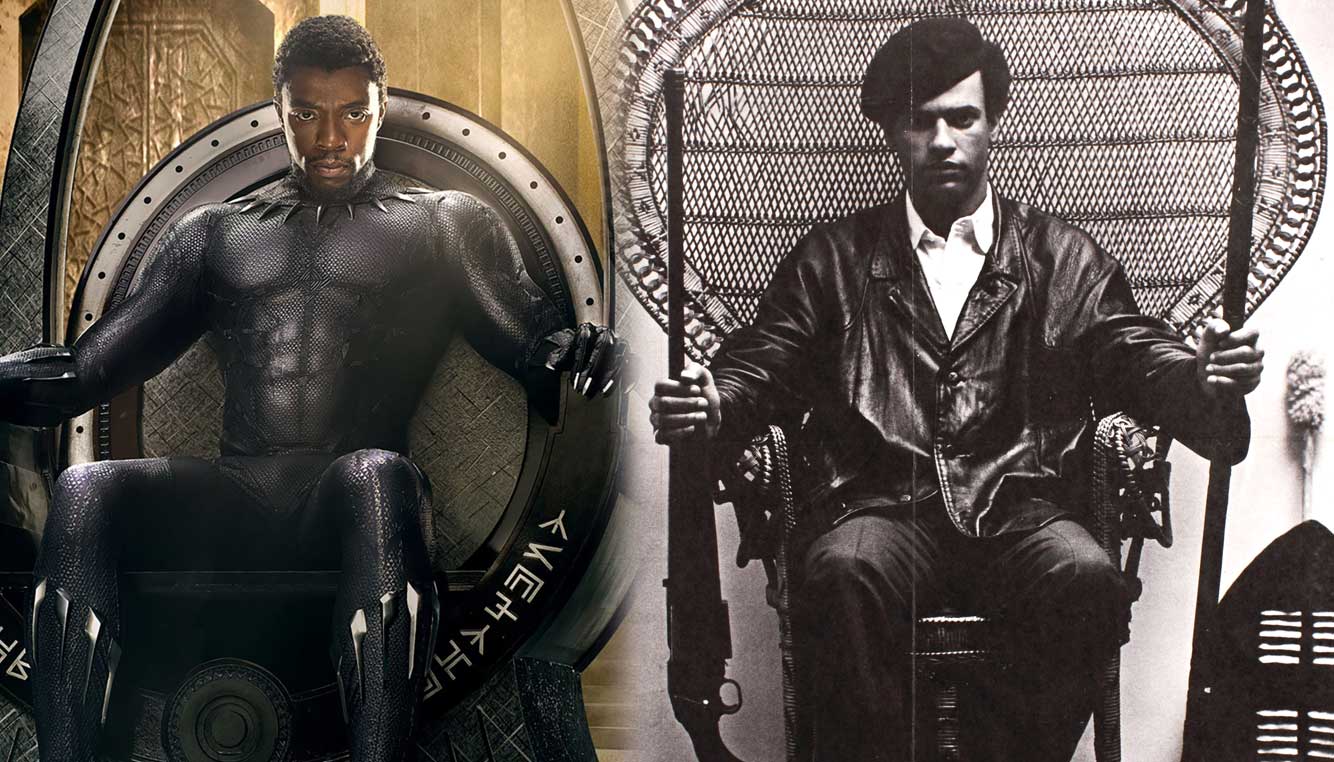
by Khaleb Khazari-El, CounterVortex
WARNING: SPOILERS
For some intransigent radicals, the movie Black Panther can only be seen as recuperation and exploitation of radical legacies by the capitalist Spectacle—specifically, Disney and its Marvel franchise. But the film is more morally serious—and morally complex—than simple blanket dismissal will allow. That Disney has decided that such a film is in the interests of its bottom line is itself a kind of victory. It reflects progress in mass consciousness won by the very social struggle that the Spectacle now seeks to capitalize on—from the real Black Panthers of the 1960s, to Black Lives Matter and the anti-Trump Resistance today.
First the good news...
NEW DISPLACEMENT CRISIS IN SYRIA
Turkey's Offensive in Afrin Follows Assad's Offensive in Idlib
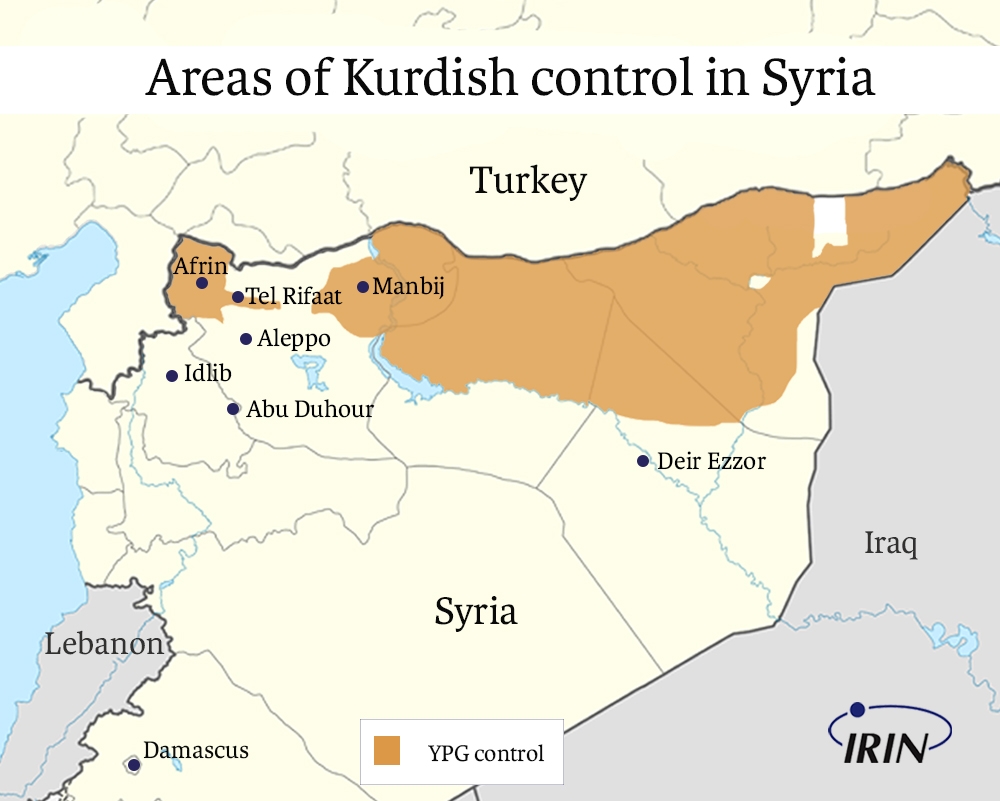
by Aron Lund, IRIN
A Syrian government offensive in northwestern Syria has already forced more than 200,000 civilians to flee in less than a month, with tens of thousands more at risk as fighting escalates. And with Afrin now under fire from the Turkish army and its allies, it could get much worse still.
Over the past month, Syrian government forces have been pushing into rebel-controlled Idlib Province, and Turkey is now in the early days of an attack on the nearby Kurdish enclave of Afrin.
Both areas, particularly Idlib, house large numbers of civilians who have already been internally displaced. While Afrin’s crisis is just beginning, some 210,000 people are on the run in Idlib Province. More than half are minors, and Save the Children describes this wave as one of the worst displacement crises of Syria’s nearly seven-year war.
"Many are sheltering in the open in freezing temperatures or in abandoned buildings," the group said in statement. "With fighting closing in on all sides, many are trapped with nowhere left to flee."
EUROPE SENDS AFGHANS BACK TO DANGER
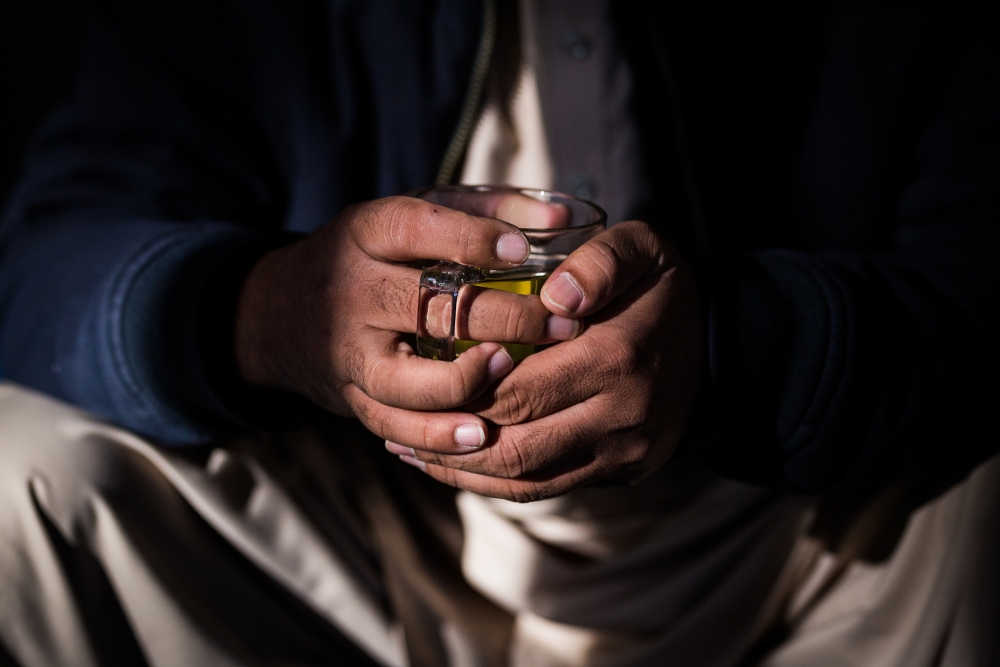
by Ruchi Kumar, IRIN
In a cafe in Kabul, Mohammad Elham’s eyes dart back and forth between a steaming cup of tea and the front entrance: the months since his return to Afghanistan have been spent in a state of constant fear.
Elham left Afghanistan on a cold night in 2010, he says, after the Taliban killed his wife and two children. Last year, he returned to the country he fled — this time, in handcuffs, one of a surging number of Afghan deportees ousted from Europe.
"It was hurtful and humiliating," Elham said of his journey from Germany, where his asylum application was rejected, to Afghanistan, where he says his presence may again jeopardize his family's safety. The 36-year-old says he fears for his life because of his previous work with Afghanistan's intelligence agency.
As European countries tighten borders and asylum policies, the number of Afghan asylum seekers pushed out of Europe has soared. But returnees like Elham are being forced back to a volatile country, where conflict has uprooted more than one million people over the last two years and civilian casualties are at near-record levels.
VIOLENCE, POWER AND MINING IN PERU
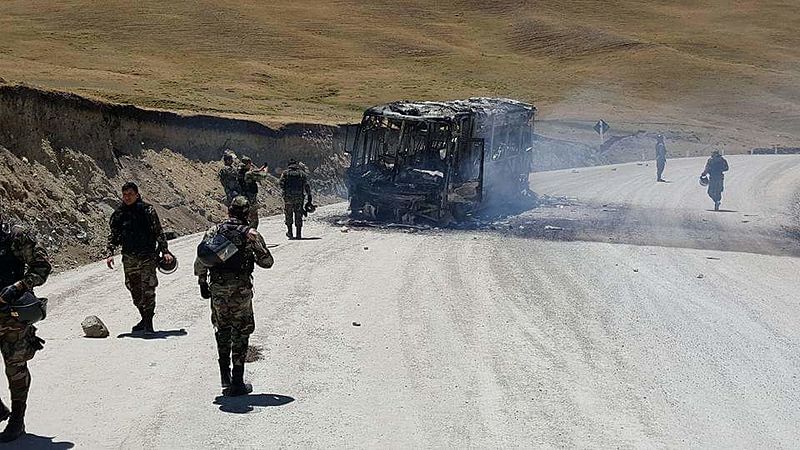
by Walter Vargas Díaz, openDemocracy
Peru has become the country of greatest attraction for mining investment in Latin America, according to a recent study by Fraser Institute, which assesses geological aspects, political environment and favorable regulation. However, this growth of investment has unleashed tensions in territories of indigenous communities, creating a powerful private force capable of influencing state decisions and exerting violence on lands, the environment and indigenous activists. Recently, the southern, Andean part of the country has experienced intense conflict at one of the largest copper mines in the world: Las Bambas.
Open-pit mining: Las Bambas
Las Bambas started commercial production of copper and molybdenum in 2016, 12 years after its international public bidding. The Swiss company Xstrata won the tender in 2004, in 2011 it obtained state approval of its Environmental Impact Study (EIA), in 2013 it was acquired by Glencore International, and in 2014 it was sold to the MMG Limited consortium, led by Chinese capital.
It is estimated that the mine produced more than two million tons of concentrated copper in its first five years, with direct impact on communities in the provinces of Cotabambas and Grau (Apurímac region) and in the mining circuit that extends to the high Andean provinces of Cusco. Although the project has three open pits, no consultation with the affected indigenous communities has been carried out. State indifference led the communities to direct negotiation attempts amid tensions with the mining companies.
Successive modifications of the EIA have unleashed a confrontation that reveals how the power of the mining industry has paved the way for repression, criminalization of communities, and human rights abuses.
THE VIOLENCE OF EXTRACTIVISM
Mega-Dam Project Now a Site of Heightened Conflict in Post-War Colombia
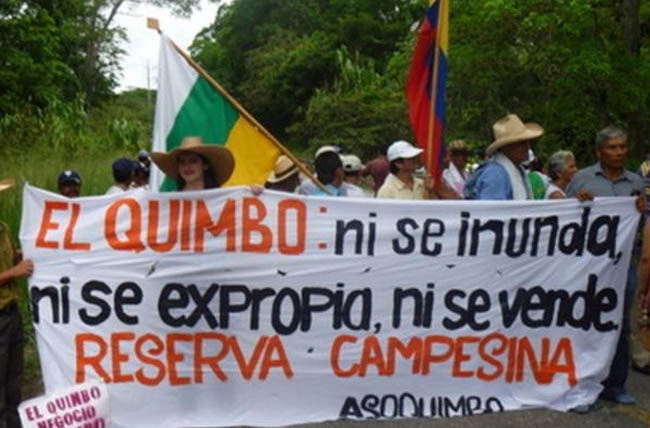
by Jeff Abbott, Toward Freedom
Colombia's 52-year-long war came to an end in September 2016, when the government and Revolutionary Armed Forces of Colombia (FARC) signed the historic peace accords. The peace process has been slow, and the newly signed accords have faced steep challenges in being implemented. Colombia's left has now confronted new threats, including targeted assassinations by paramilitaries, and criminalization for defense of land and the environment.
The 400-megawatt El Quimbo dam sits on the Magdalena River, in the southern province of Huila. Construction began in 2010, but the plans date back to 1995, when companies began to look upon the region as an area for development. The dam is owned by Italian energy giant Enel, but it was constructed with investments made from Spanish company Emgesa and Colombia energy company Energía Bogotá. It is the first privately funded hydro development project in the country.
The project came online in December 2014. Today, communities are demanding the closure of the dam due to the impacts on the region.
THE REDACTION OF WOMEN'S RIGHTS
The Rise and Fall of Civil Liberties in Afghanistan
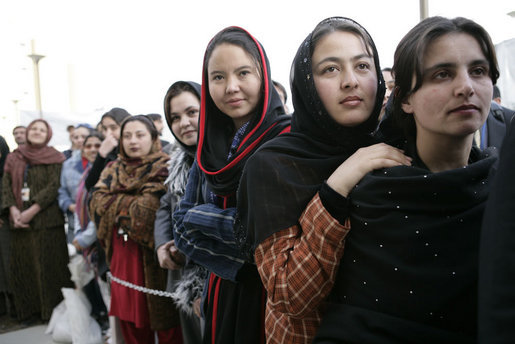
by Susan Farooqi, Jurist
When we think of women in Afghanistan, we often assume that they are oppressed, and recall images of women in burqas and stories of women being brutalized. Although there is a lot of truth to these perceptions, the situation has been different in the past, and could be different in the future. Efforts to improve women's rights do not need to resist centuries of tradition; they need to merely reverse recent developments, which are themselves ahistorical.
Although women in Afghanistan were indeed historically oppressed by patriarchy, just as women in medieval Europe were often treated more as property than as individuals, this process began to change during the nineteenth century, as liberalism became an increasingly global philosophy. In particular, during the 1920s, just as women in the United States experienced new freedoms, including the right of suffrage, women in Afghanistan were also able to extend their rights and achieve what was essentially a modern status. It was not until the 1980s that this trend was reversed.
SYRIA'S KURDISH CONTRADICTION
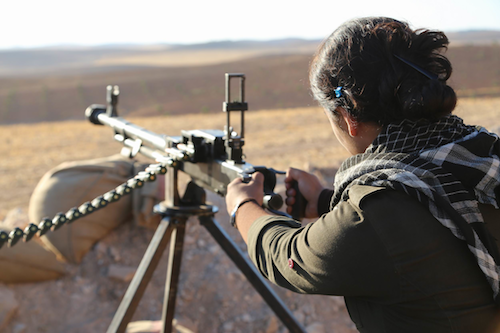
by Bill Weinberg, Los Angeles Review of Books
A strange paradox of the vertiginous world situation is that a radical left movement strongly influenced by anarchism is being massively backed by the Pentagon in the war for northern Syria. This movement, in fact, is now the United States' closest partner among the indigenous forces in the Syrian war.
The Kurds of northern Syria call the region Rojava (sunset or west in their tongue), and since 2012 have had their own autonomous zone. Two years later, the celebrated battle of Kobani opened as this town within the autonomous zone was besieged by the self-declared "Islamic State" (ISIS). Kurdish women fighters with a consciously feminist ideology driving back the ultra-reactionary ISIS became a global meme.
The US, after initially writing off Kobani, started aiding the Kurdish fighters as they began to turn the tide, against all expectations. Warplanes were sent in their support, and the pact between the Pentagon and the revolutionary Kurds was forged. US military advisors were embedded in their militia. Kurdish-led forces are now fighting to take the ISIS de facto capital Raqqa in a Pentagon-directed campaign backed by US air-strikes.
AFTER GUARI LANKESH
Standing for the Human Rights of Journalists in India
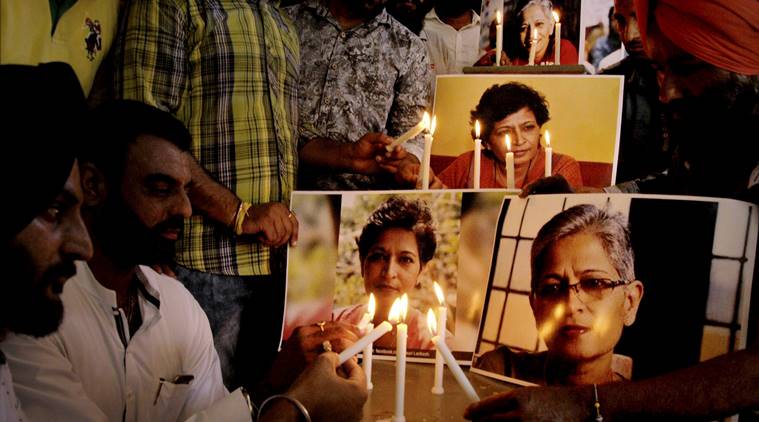
by Nava Thakuria, CounterVortex
India, touted as the world's largest democracy, is and remains a dangerous place for working journalists irrespective of the regime in power at New Delhi or any provincial capital. The populous country witnesses the murder of around five media workers each year, an average that has not changed for decades. And few of these cases see any justice in the country's court system. The media workers' community in the South Asian nation now plans to observe the Oct. 2 birthday of Mohandas Karamchand Gandhi—a lawyer turned journalist turned India's liberation hero—with countrywide demonstrations to demand freedom of expression and an end to the atmosphere of impunity.
The month of September saw three shocking journo-murders from different parts of India. So far, 2017 has witnessed the killing of eight journalists—to a lukewarm reaction from the authorities. It was only the murder on Sept. 5 of editor-journalist Gauri Lankesh, 56, at her home in Bangaluru (formerly Bangalore) that aroused massive protests across the country.















Recent Updates
3 hours 30 min ago
6 hours 47 min ago
1 day 1 hour ago
1 day 2 hours ago
2 days 11 hours ago
2 days 11 hours ago
4 days 11 hours ago
5 days 1 hour ago
5 days 2 hours ago
5 days 2 hours ago